Religious and Cultural Traditions in Headstone Design
Religious and Cultural Traditions in
Headstone Design
Headstones
serve as lasting memorials to honor and remember loved ones. Across different
cultures and religions, headstone designs vary significantly, reflecting unique
beliefs, traditions, and customs. Understanding these traditions can help
families make informed choices that respect and celebrate their heritage. In
this article, we explore various religious and cultural influences on headstone
design.
Christian Headstone Traditions
Christian
headstones often feature religious symbols and inscriptions that reflect faith
in the afterlife.
· Common Symbols: Crosses,
angels, doves, and praying hands.
· Inscriptions: Bible verses,
prayers, and epitaphs that emphasize hope and resurrection.
· Design Considerations: Traditional
upright monuments or flat markers, often made from granite or marble.
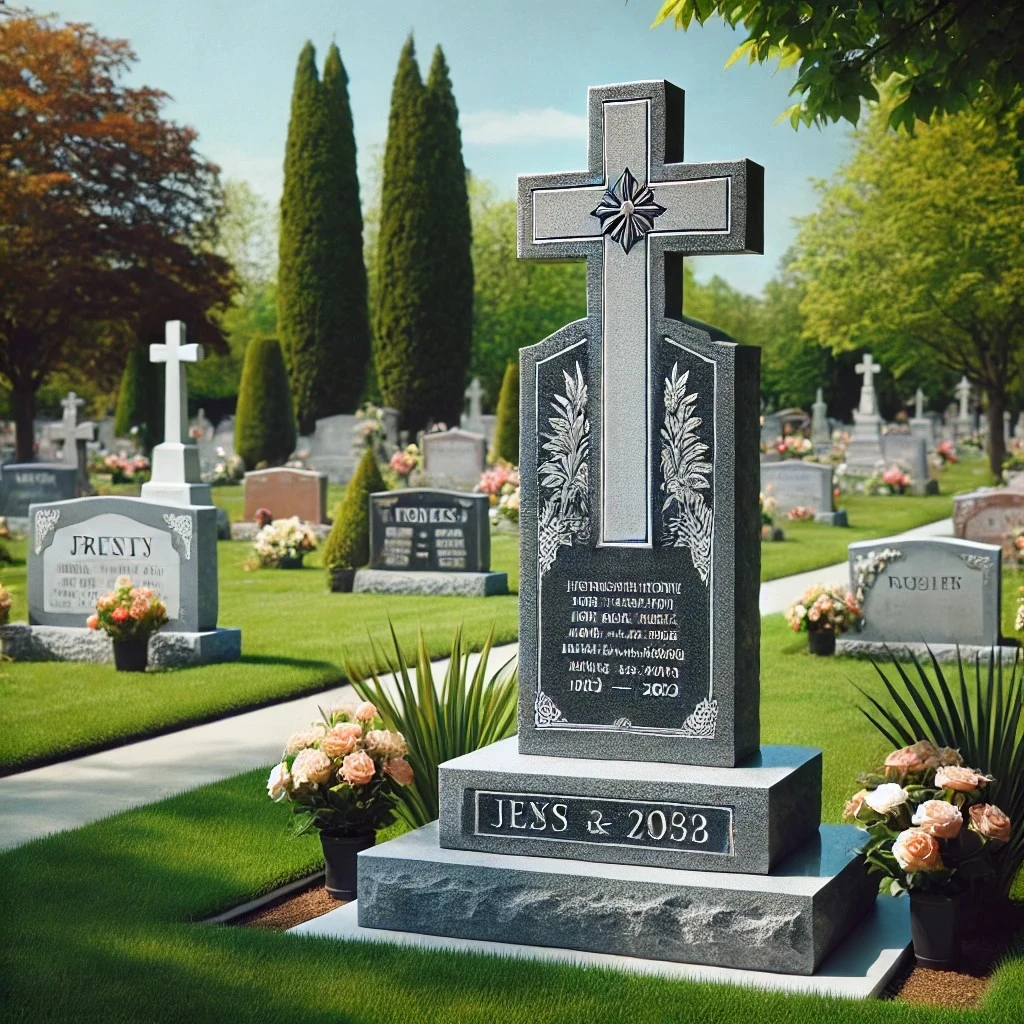
Jewish Headstone Traditions
Jewish
headstones follow specific guidelines and often include Hebrew inscriptions.
· Common Symbols: Star of
David, menorahs, and the Kohen hands (for priestly blessing).
· Inscriptions: Hebrew names,
prayers, and references to family lineage.
· Design
Considerations: Simplicity
is key, as Jewish tradition discourages elaborate designs. Many include small
stones left by visitors as a sign of respect.
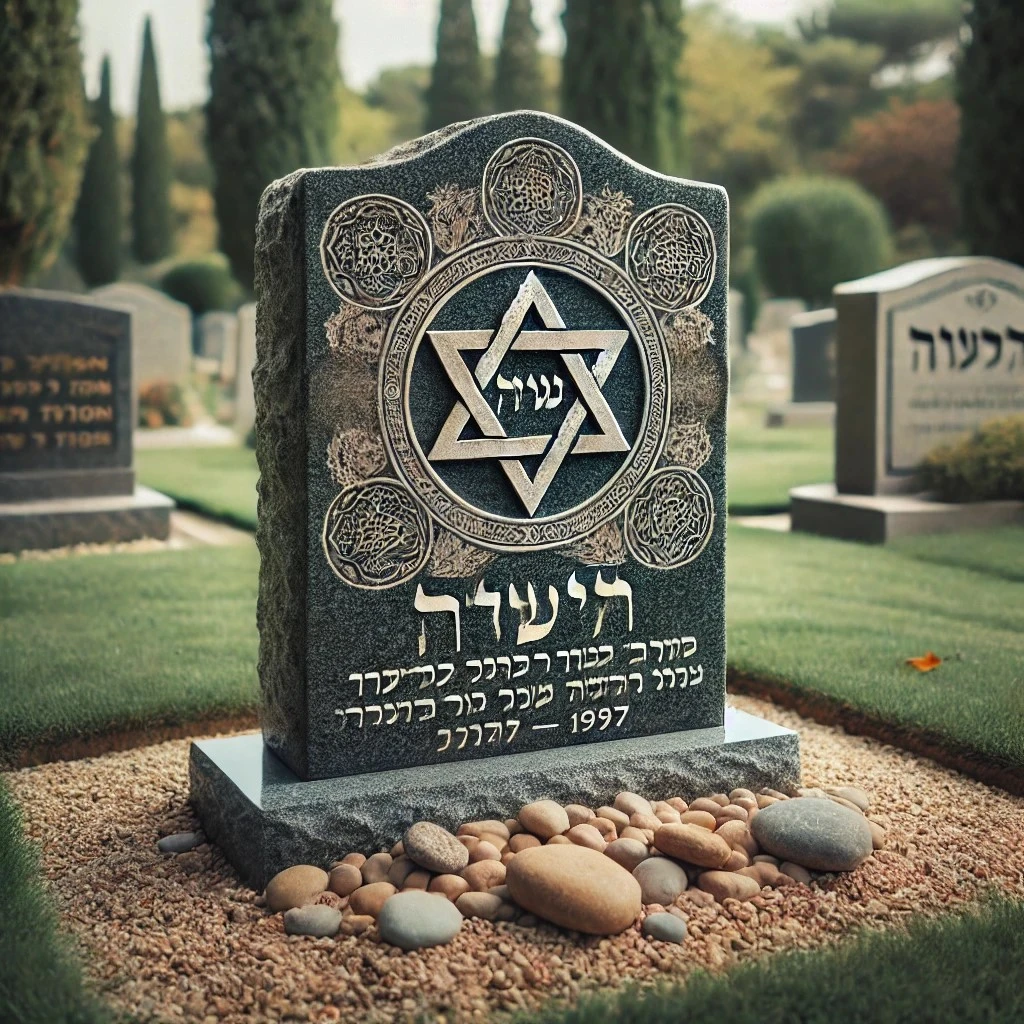
Islamic Headstone Traditions
Islamic
headstones focus on humility and respect, often incorporating Arabic script and
religious text.
· Common Symbols: Crescent
moons, calligraphy, and Quranic verses.
· Inscriptions: The
deceased’s name, their father’s name, and prayers in Arabic.
· Design
Considerations: Islamic
customs generally discourage highly decorative monuments, favoring simple and
dignified headstones.
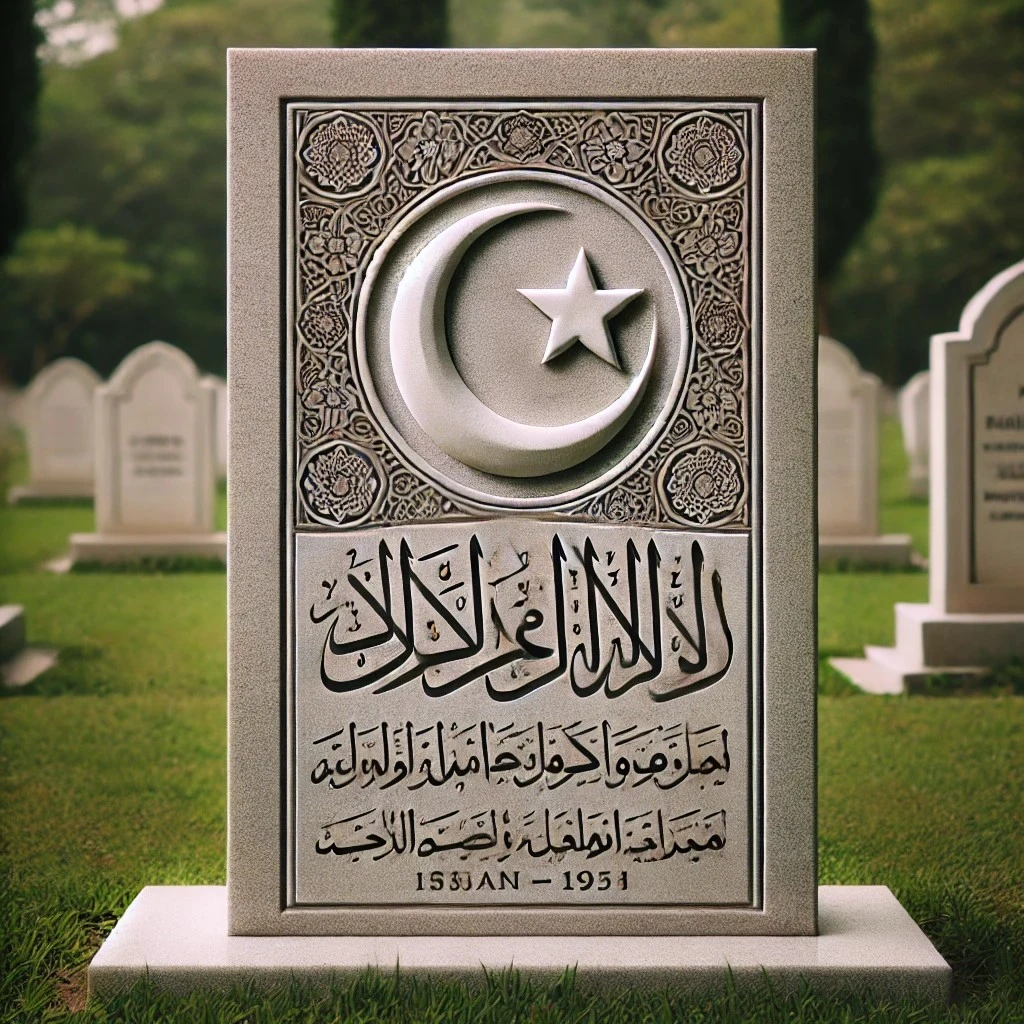
Buddhist and Hindu Headstone Traditions
Buddhist
and Hindu traditions often incorporate spiritual symbols and philosophies
related to reincarnation and enlightenment.
·
Common Symbols: Lotus flowers, Dharma wheels, Om
symbols, and depictions of deities.
·
Inscriptions: Sanskrit or Pali texts, mantras, or
philosophical reflections on life and rebirth.
· Design
Considerations: Some
prefer natural stone markers, while others use elaborately carved designs to
depict sacred imagery.
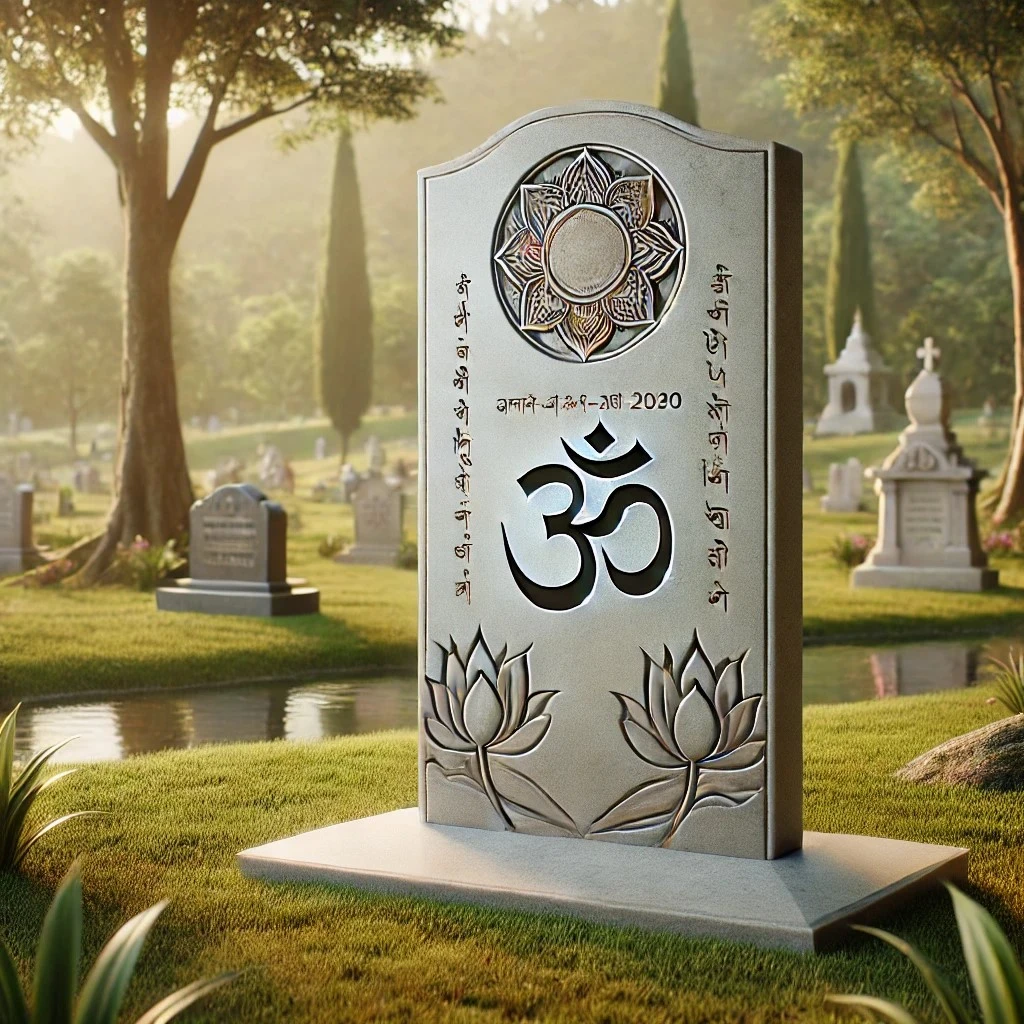
Indigenous and Cultural Headstone Traditions
Many
indigenous and ethnic groups have distinct ways of memorializing their loved
ones.
· Native American
Traditions: Often
incorporate natural elements like wood and stone, featuring animal totems and
tribal patterns.
· Celtic Traditions: Use intricate
knotwork, crosses, and Gaelic inscriptions.
· Asian Cultural Traditions: Include
family names and honorifics, sometimes featuring dragon or phoenix carvings for
protection and good fortune.
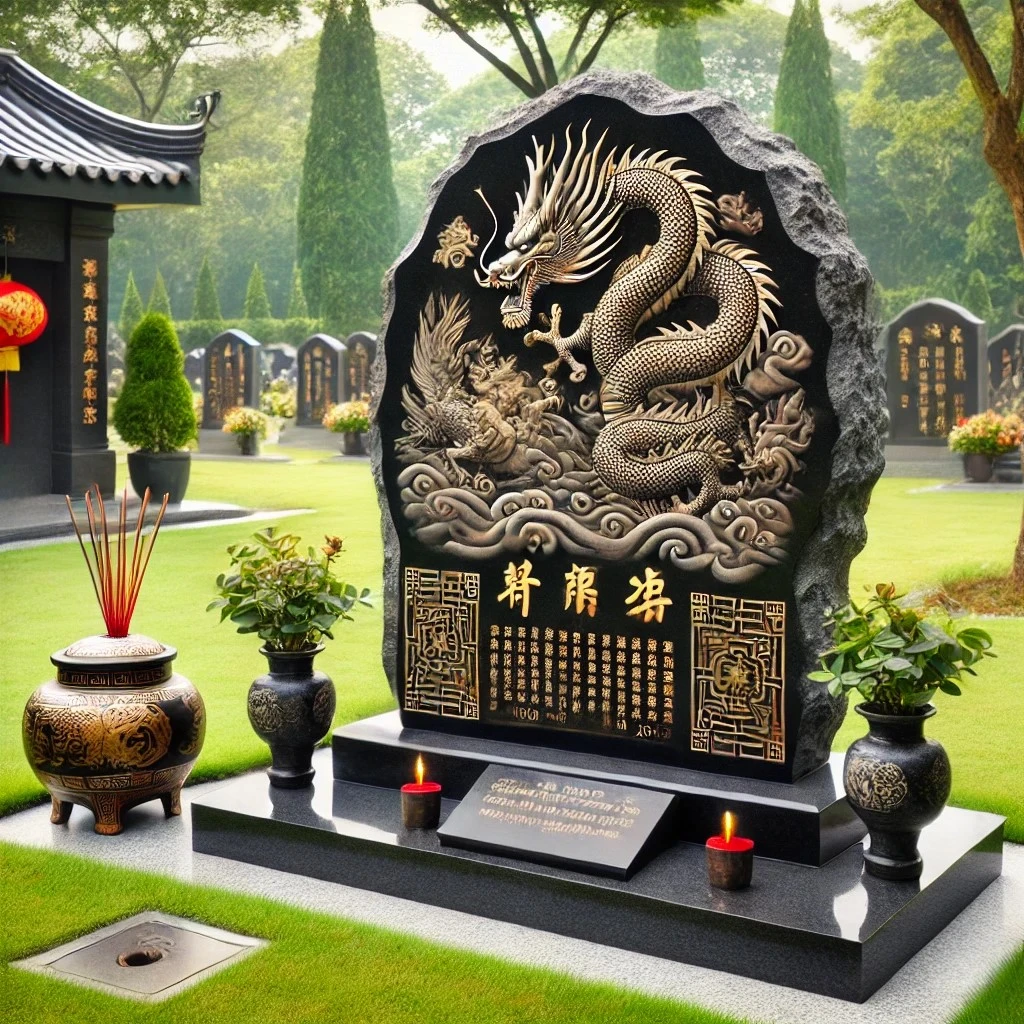
Modern and Personalized Approaches
With
globalization and evolving traditions, many families now choose customized
headstones that blend religious, cultural, and personal elements.
· Popular
Customizations: Laser-etched
portraits, personalized quotes, and non-traditional materials.
· Hybrid Designs: Combining
religious symbols from interfaith families or merging cultural motifs.
· Eco-Friendly
Memorials: Some
modern headstones use sustainable materials or incorporate digital elements
like QR codes leading to online tributes.

Conclusion
Understanding
religious and cultural traditions in headstone design helps families create
meaningful and respectful memorials. Whether following time-honored practices
or blending traditions, the goal is always to honor a loved one’s life in a way
that resonates with their faith and heritage. All these types of headstones and
even more can be found in the shop category of remembranceheadstones.com.
If you can't find exactly what you're looking for, we are more than ready to
work on a custom model to meet your specific needs. If you need guidance in
selecting a culturally appropriate headstone, contact us today for expert
advice.
ARTICLE GENERAL IMAGES THAT WILL BE USED WITH ARTICLE NAMING
THAT USER WILL CLICK ON AND PROCEED TO ARTICLE ABOVE:
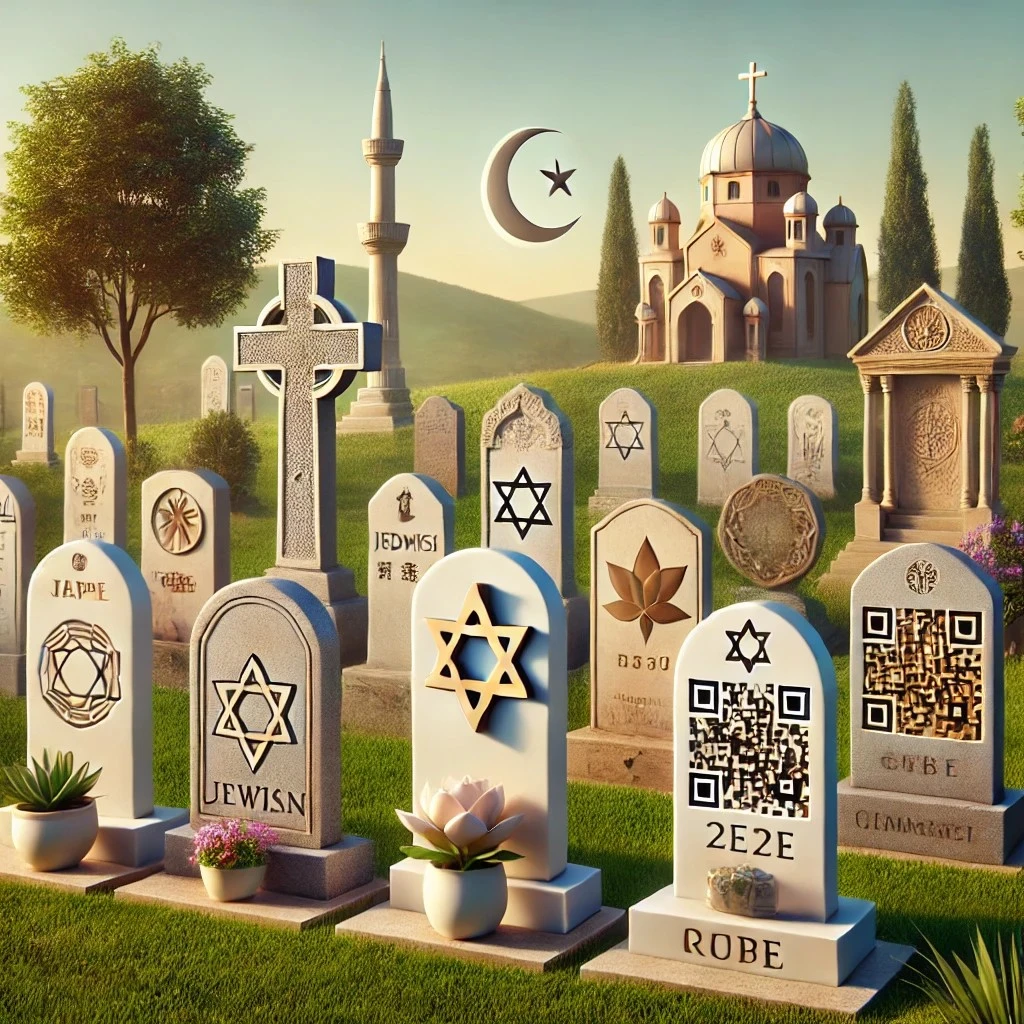
ARTICLE SHORT NAMING THAT WILL BE USED AS TITLE THAT PEOPLE
WILL CLICK AND MOVE TO THE ARTCLE:
“Religious
& Cultural Headstone Traditions: Meaning, Symbols & Choices”